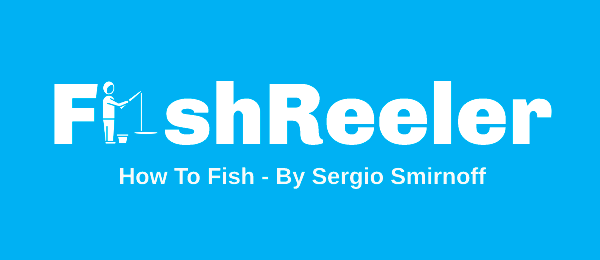If you have a boat, the next step is to find a good fishing spot near the parking lot. Here are some tips:
- Buy a map of top spots and depths at your local fishing store.
- Find Web sites on the Internet, such as https://myfwc.com, that show locations and where you can catch big fish.
- Third option. Interview local fishermen using their knowledge and experience over the years.
- And your own experience and observations. Buy a sounder, navigation, and fish finder. Study the holes and differences in depths. Fix the coordinates.
Don’t be in a hurry to sail far from the port where your boat is. In doing so, you save time and fuel. Start exploring the bottom topography in the port area.
Pay attention to changes in depth, large rocks, sand, vegetation, accumulation of fish, shipwrecks, and signal buoys. These are all useful landmarks.
If you are going to fish with a fishing tackle up to 40 meters long, it is best to look for places close to the shoreline.
If you are going to trolling, then study the local currents and coastal breezes.
Do not forget about the standard signs – accumulation of birds, backs, and jumps of small fish.
Personal experience pretty much solves everything. When to fish and how to fish. The best time is 3 hours before sunset (evening) and 2 hours before sunrise (morning). Have a good bite.
Fish that feed at shallow depths, such as mackerel, sierra, jurel, sardines, and others, can be caught in these areas. You can also cast your fishing tackle on the bottom with heavyweights (100 grams to 1000 grams). And last you can throw live baits, wobblers, and trollers. And the lighthouse will help you quickly get back to your harbor. Have a good fishing trip.
- Search for a cluster of fishermen. Chances are they are experienced local anglers who know good spots. Join them.
- Search for a cluster of hunting birds. Seagulls see fish from afar; they circle over the area where they have spotted prey.
Search for jumping fish. The simplest and most effective method: if the fish showed up, then it’s definitely there. To track splashes easier, use polarizing glasses: they “muffle” the sun’s glare on the water. - Using an echo sounder. Very effective, but expensive way. The echo sounder shows exactly where a flock of fish is located. You are just required to swim slowly and watch the device.
- If your goal – is bottom fish (eg, gobies, perch), look for places of accumulation of rocks. Usually in the Black Sea, they are at a distance of 300-1000 meters from the shore. You can determine the characteristics of the bottom by using a heavy sinker. Lower it to the bottom and knock: even without much experience, you will determine what the sinker is in contact with – the sand or the stone.
A distinctive feature of fish away from the shore is that they are not timid. The exception is cautious predators. The reason – often passing ships, boats, and jet skis, which make loud noises. Consequently, the fish in such an area can forgive the fisherman for some mistakes.
If the wires do not give results, you can use the drifting method. It is very simple. You need to swim away from shore at 1000 meters or more, put the bait down, and just wait. This method is especially effective when using flavored bait. For fishing this method it is recommended to choose days when the wind is not blowing in the direction of the shore. Otherwise, you will have to interrupt your swim and paddle deep into the sea from time to time.
The first involves the use of natural bait: small fish or pieces of sardine, herring, mackerel, squid, and shrimp of various species, as well as large earthworms.
In the second case, a troll is used, which should be dark, but at the same time eye-catching and resemble one of the fish species that live in local waters. In this case, you can bait the future prey, scattering in the vicinity of the boat the same finely chopped pieces of sea creatures, which are part of its usual diet.
Sometimes there is fishing “on the fly”, when the role of the bait is a dummy of a particular insect, although it is much more suitable for freshwater.
Not the least important role is played by the sea topography, the features of which are marked on the maps. Chances of a good catch increase in the presence of underwater mountains, hills, reefs or caves, or artificial objects that can serve as a good cover for ambushed predators and their victims – for example, sunken ships or signal buoys. Special attention should be paid to places where birds (gulls, petrels, etc.) circle and periodically dive into the water.
Please login or Register to submit your answer
